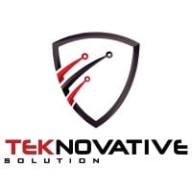

Real Estate CRM and Intercom are in different competitive categories. Intercom has the upper hand due to its rich feature set and deployment flexibility, despite higher costs.
Features: Real Estate CRM includes property management tools, lead tracking, and sales analytics suited for real estate professionals. Intercom offers live chat, automated messaging, and customer segmentation for broader communication needs.
Ease of Deployment and Customer Service: Intercom utilizes cloud-based deployment with robust API integrations, ensuring a smooth integration process across platforms. Real Estate CRM offers straightforward setup but might need additional customization for seamless platform integration.
Pricing and ROI: Real Estate CRM generally has lower initial setup costs, making it attractive to budget-conscious buyers. Intercom reflects its advanced features in its higher pricing, promising higher ROI through better customer engagement.

Intercom Customer Communications Platform enhances interactions by offering robust tools designed to streamline customer engagement and support, effectively catering to modern business communication needs.
Providing a comprehensive approach to customer interaction, Intercom facilitates seamless conversation management through its adaptable suite of messaging, logistical, and analytical features. Frequently utilized for customer support and marketing, its flexibility and user-friendly design encourage efficient communication. While offering valuable insights through analytics, some users note areas for improvement in customizability and pricing models, pointing towards a potential enhancement in fine-tuning its cost-effectiveness and adaptability to diverse business strategies.
What are the standout features of Intercom?Industries such as e-commerce, SaaS, and tech-driven businesses often implement Intercom for its ability to provide personalized customer journeys. Its messaging platform excels in maintaining customer relationships and resolving issues quickly, which is crucial in these fast-paced sectors.
Real Estate CRM is a comprehensive tool designed for real estate professionals to manage client interactions, automate the sales process, and enhance customer relationships, improving operational efficiency.
Built with real estate professionals in mind, Real Estate CRM centralizes all client data and communication channels. This optimization allows for seamless tracking of customer journeys from initial contact to closing a deal. The CRM integrates customizable workflows, providing flexibility for business-specific processes and automating repetitive tasks. Real Estate CRM enables team collaboration with shared calendars and task management, boosting productivity. Continuous updates and support ensure the system evolves with industry trends and user needs. Automation capabilities reduce manual tasks, freeing up time for client engagement and strategy development. Real Estate CRM remains a game-changer for any property-related business seeking growth and customer satisfaction.
What are the key features of Real Estate CRM?Implementation of Real Estate CRM across industries allows businesses to adapt the system to specific sector needs. From residential to commercial properties, the CRM facilitates tailored processes that cater to distinct market demands. Integration within industry-specific environments maximizes resource utilization and operational output.
We monitor all CRM reviews to prevent fraudulent reviews and keep review quality high. We do not post reviews by company employees or direct competitors. We validate each review for authenticity via cross-reference with LinkedIn, and personal follow-up with the reviewer when necessary.